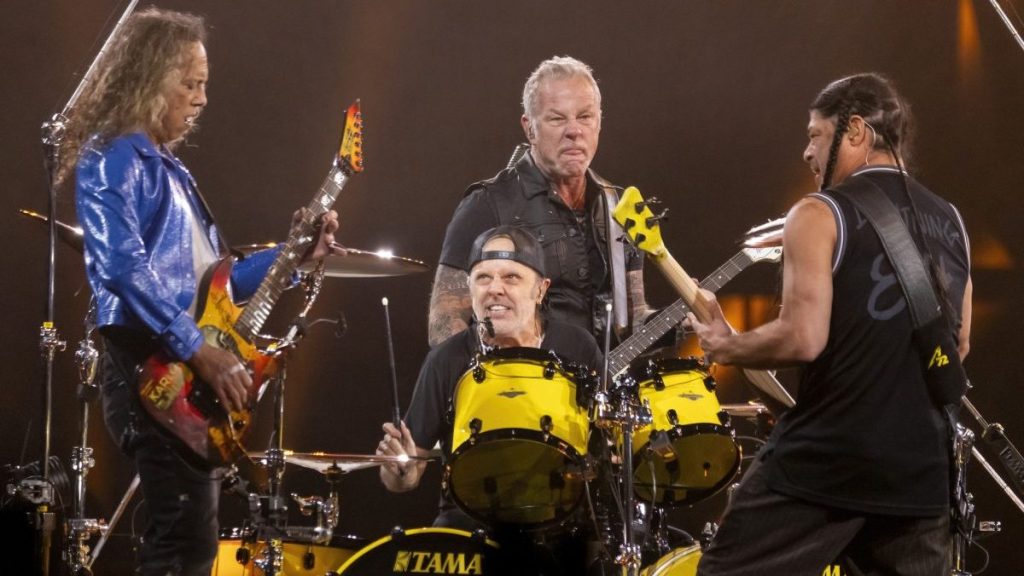If you needed further evidence that we live in a global dystopia where rich people dine like kings on caviar and champagne in compounds walled off from the destitute, huddled masses, allow me to direct your attention to No. 15 Renwick. A new high-end Manhattan real estate property marketed by developers as the city’s first “steampunk luxury condos,” the Renwick plays into the aristocratic fantasies of people who buy $7 million apartments, the pitch for the building focuses not on condos themselves, but on Victorian-esque “Characters” who are featured in the building’s marketing materials lounging around in penthouses and Zen Gardens amid a tableau of minimalist furniture and faux 19 th-century home goods.
It’s an absurd way of attracting attention to yet another gilded Manhattan development, sure, but also a cogent reminder of the erosion of the American experiment, and of the looming class war that could erupt at any point. The “Characters,” according to the building’s website, “embody the creative persona of today’s Hudson Square resident and the insider nature of the single-block Renwick Street.” All that’s missing are towering cakes and peasants wielding pitchforks.
Videos by VICE

IGI-USA
We’ve known since the 1970s that the gap between rich and poor is widening, but recently, it’s just started to feel worse. The Renwick sales pitch is just another sign that rich people and their children live increasingly isolated, and fabulous, lives, counting their treasure in luxury colonies while the rest of us drown in student loan debt and hope this isn’t the month you’ll have to start selling our bodies on Task Rabbit.
At this point, nearly everyone agrees that this is a problem. Inequality—and the class envy that it engenders—has become the undercurrent running through our political and social debates, threatening to erode democratic systems and derail the fragile economic recovery. In its 2015 outlook, the World Economic Forum identified growing inequality as the No. 1 risk facing the global economy, noting that it threatens to undermine social stability and weaken political systems around the world.
It’s not hard to see why. A Global Wealth Report published by Credit Suisse researchers this fall found that the bottom half of the global population now own less than 1 percent of total wealth; the richest 10 percent, meanwhile, control 87 percent of global assets, a full 48 percent of which are held by the richest 1 percent. An Oxfam study released last month confirmed those numbers, and projected that the 1 percent would hold more than 50 percent of global wealth by 2016, if trends continue.
“At the top end, executives and others are earning higher salaries than ever before and as they save and invest they will become steadily wealthier,” said economist James Davies, who coauthored the Credit Suisse report. “In the middle and upper-middle, saving and investment should also continue strong as the population continues to age and people prepare for retirement. Young people and low-income people will have little room to save, but that has been true for a long time.”
As Davies suggests, inequality feeds on itself, begetting higher concentrations of wealth at the top of the economic pyramid. In the US, where Democratic politicians, including President Obama, have relentlessly campaigned against the income gap, the problem goes far deeper when you look at overall wealth. According to a paper published this fall by Emmanuel Saez, an economist at UC Berkeley, and Gabriel Zucman of the London School of Economics, the wealth gap in the US is at its widest point in decades, as high incomes lead to further asset gains among top earners.
“Income inequality,” Zucman and Saez write, “has a snowballing effect on the wealth distribution: top incomes are being saved at high rates, pushing wealth concentration up; in turn, rising wealth inequality leads to rising capital income concentration, which contributes to further increasing top income and wealth shares.” At these levels, the authors noted in an accompanying blog post, the wealth gap now constitutes “a direct threat to the cherished American ideals of meritocracy and opportunity.”
Whatever class envy this has inspired is compounded by the fact as the wealthy get wealthier, their ranks are also expanding. According to last year’s World Ultra Wealth Report, an annual survey of the global super-elite published by UBS and the private luxury research firm Wealth-X, the number of people with a net worth of more than $30 million grew by 6 percent in 2014, to 211,275—a group that, combined, controls more than $30 trillion in wealth, if you’re counting, and they almost certainly are. That means that while the super-rich—or ultra-high-net-worth individuals as they prefer to be called—make up only 0.004 percent of the world’s population, they control almost 13 percent of the planet’s wealth.
The report’s authors project that those numbers will continue to swell, noting cheerfully, “We expect the ultra affluent population to continue to dominate and influence the global economic landscape with their wealth, whether in total assets under management or luxury purchases, as they have much larger cash balances as well as a longer history of access to wealth.”
“More and more people at a younger and younger age are going to reach a point where they have wealth that will exceed or far exceed what they need for their desired standard of living in the future,” said Paul Schervish, director of the Center for Wealth and Philanthropy at Boston College. “More and more people are going to be solving or near to solving the economic problem in their lives—and that means that there will be a change in the moral code.”
Already, a kind of tribalism has taken hold among the elite and their children, even in the US, where this sort of artificial aristocracy is supposed to be anathema. The UBS/Wealth-X survey estimates that, on average, ultra-high-net-worth individuals have seven ultra-high-net-worth friends (and if eight of them get together, that means at least $240 million is in the same room). Unbound by international borders—and, in many cases, laws—these elite groups are rapidly colonizing cities like London, New York, Vancouver, and Miami, driving up real estate prices with luxury developments that give emerging-market kleptocrats a place to quietly squirrel away their shady fortunes.
So while the rest of you poor suckers struggle with stagnant wages and median household income that’s still well below what it was before the Great Recession, the super-rich are limited only by their imaginations, free to pursue their strangest, and most dystopian, fantasies. Urban rooftop llama farms? Done. Space travel?You got it. Eternal life? They’re working on it.

The Necker Nymph, an underwater aircraft designed by British billionaire Richard Branson. Image via Virgin
The Wealth Report, an annual update on the super-rich released by the British real estate firm Knight Frank, provides some useful insight into the dreams of the extraordinarily fortunate: “Expect more property demand, more development, more travel and, as a result, more people searching for really private escapes,” the most recent edition reads. “Maybe it’s time to invest in that South Pacific island you’ve had your eye on. Assuming it can accommodate a runway and a space port, a James Bond villain–esque hideaway will soon be convenient for, well, just about everyone.” A section devoted to investments in space marvels at new opportunities in asteroid mining, noting that Knight Frank has published a list of “asteroids to watch” to confirm the value of “key space rocks that will be coming (relatively) close to Earth soon.” Apparently without irony, the report cautions investors to lawyer up, though, because “existing property law is slightly vague about settling ownership disputes in space.”
If 2014 was the year that income inequality saturated the public consciousness, 2015 could be the year that people actually did something about it.
“The real story is not the upper-middle class versus everyone else—it’s the top .001 percent versus everyone else,” said Cornell University economist Robert Frank. “It’s a winner-take-all economy. [The wealthy] have techniques that enable them to serve the entire global market, so now there are no limits on how rich they can get.” The effects of this are insidious, Frank argues, driving up prices and forcing the middle classes to spend money they don’t have, or settle for less.
If 2014 was the year that income inequality saturated the public consciousness, 2015 could be the year that people actually did something about it. Across the world, the concentration of wealth—and the fabulous flaunting of it by the world’s millionaires and billionaires—is fomenting populist outrage against a system that seems increasingly rigged.
In Europe, concerns about high unemployment and austerity policies, have lead to a rise in euroskeptic parties, culminating in this week’s standoff between euro zone finance ministers and Greece’s new far-left government over the terms of the country’s bailout deal. Skyrocketing real estate prices driven by rich foreigners have led both Canada and Australia to put restrictions on wealthy immigrant investments, and protests over London’s insane housing market could drive the UK to take similar measures. From Ferguson to Hong Kong, recent protest movements and general unrest hint at a looming class warfare that no one wants to talk about.
Even rich people know this inequality isn’t like the inequality of yesterday. “The divisions could get wider,” Goldman Sachs CEO Lloyd Blankfein said in an interview with CBS News last June in which he blamed inequality for those divisions. “If you can’t legislate, you can’t deal with problems. [If] you can’t deal with problems, you can’t drive growth and you can’t drive the success of the country. It’s a very big issue and something that has to be dealt with.”
At the World Economic Forum in Davos last month, other Masters of the Universe seemed to agree, warning one another about the instability their wealth could wreck on the global economy. One economist told a panel that his nervous hedge funder friends are already planning escapes from the inevitable outbreak of class war. “I know hedge fund managers all over the world who are buying airstrips and farms in places like New Zealand because they think they need a getaway,” he said, according to the Guardian. “People need to know there are possibilities for their children—that they will have the same opportunity as anyone else. There is a wicked feedback loop.”

A private jet traffic jam at Davos. Photo by zerohedge via Twitter
In the US, determining what will happen with income inequality “is as much political as it is economic speculation,” said Chad Stone, the chief economist at the Center on Budget and Policy Priorities, a progressive Washington think tank. The simplest solution is for the government to raise taxes on the rich. President Obama proposed as much in his State of the Union this year, unveiling a so-called “Robin Hood” tax plan that would raise taxes on capital gains, ending tax breaks on inherited assets; impose new borrowing fees on the country’s biggest banks; and prevent rich people from accumulating massive stores of cash in tax-preferred retirement accounts.
GOP leaders in Congress have already made it clear that these proposals aren’t going to go anywhere. Although Republicans have started to acknowledge that income inequality is problem, the party’s distaste for taxes and banking regulation are unlikely to check income growth at the highest level. “Republican policies would take us in the opposite direction,” said Stone. How far they can go, he added, “depends on how much availability Republicans have to push their agenda.
“In the immediate future, I don’t see any major restraints on the concentration [of wealth] at the top,” he added. “Depending on whether wages pick up, we could see some improvement at the bottom. But if the stock market remains strong, levels at the bottom won’t catch up to those at the top.”
Already, the question of how the country will grapple with its gaping wealth gap has become a central issue of the nascent presidential campaign. A Gallup poll released in January found that two-thirds of Americans—including a majority of Republicans—are unhappy with the way income and wealth are distributed in the US. More surprisingly, a recent focus group found that the potential 2016 presidential candidate who elicited the most positive response from voters, regardless of party affiliation, was Massachusetts Senator Elizabeth Warren, whose populist, anti-corporate schtick has resonated with the progressive wing of the Democratic Party.
Recognizing the reality of these numbers, Republicans have started appropriating Democratic rhetoric on income inequality, moving away from Ayn Randian notions about the “morality of capitalism” and the ingratitude of the 47 percent. On the Democratic side, Hillary Clinton is also apparently grappling with how to address the inequality issue, eager to avoid a populist left turn that could derail her expected coronation as the party’s presidential nominee. A New York Times story published this week reported that the former secretary of state has met with more than 200 economists to try to hammer out a plan around the idea of “inclusive capitalism,” which contends Americans don’t hate rich people, they just want to feel like they could join them. The challenge, according to the Times, is to address discontent over the wealth gap, without vilifying rich people like herself and the people who will bankroll her campaign.
Which, of course, underscores the real problem with inequality—in addition to undercutting when wealth concentrates so heavily at the top, it starts to infiltrate and corrode the political system, poisoning the democratic process and putting the levers of power in the hands of the very few. The reality is that rich people pay for campaigns. So regardless of what policies they propose to fix the wealth gap, candidates will always face pressure to protect the top of the pyramid.
Whether this will lead to a class revolt, though, depends on how we feel about our own economic circumstances. “Income inequality has already risen so much in the US that it is possible that it has hit its peak,” said Davies. “If the economy continues to improve, as it has been doing in the last little while, that will help all income groups.”
If wages pick up, and voters no longer feel like they are one broken arm away from financial destitution, the fact that rich people are getting richer may no longer seem like such a pressing injustice. “Whether income inequality fades, or remains in the public debate has a lot to do with consumer confidence,” Stone explained. Because in America, voters don’t care how rich you get as long as they don’t feel like they’ll be poor forever.
Follow Grace on Twitter
More
From VICE
-

Photo: Catherine Falls Commercial / Getty Images -

Photo: RYosha / Getty Images -

Screenshot: Running with Scissors
